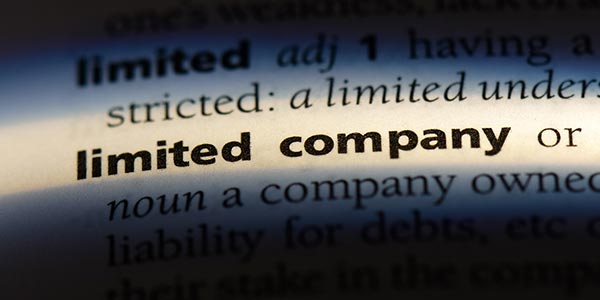Did you know that the most popular way of running a business in the UK is to be Self Employed? However, here are some of the advantages of running your business as a Limited Company rather than as a Sole Trader.
TAX
• One of the biggest advantages for many is that running your business as a limited company can enable you to legitimately pay less personal Tax than a sole trader.
• Limited company profits are subject to UK Corporation Tax, which is currently set at 19%.
• If you are the director and shareholder of a limited company, you may choose to take a small salary and draw most of your income from the business in the form of dividends.o By doing this, you can minimise the amount of National Insurance Contributions (NICs) you have to pay because limited company dividends are not subject to NICs.
• As a sole trader, your entire income is subject to NIC rules. Running your business as a limited company could therefore help you to take home more of your earnings.
Separate Entity
• A limited company is a completely separate entity from its owners. Everything from the company bank account, to ownership of assets and involvement in tenders and contracts is purely company business and separate from the interests of the company’s shareholders.
• A sole trader and his/her business is treated as a single entity for tax and administrative purposes.
Limited Liability
• Running your business as a limited company means you have the reassurance of ‘limited liability’.
• Assuming no fraud has taken place, your ‘limited liability’ means you will not be personally liable for any financial losses made by your business. A limited company can therefore give you added protection should things go wrong.
• Those running a business as self employed do not enjoy such protection from financial claims. If things go wrong with a business operating as a sole trader (or partnership,) the owners are personally liable for all the debt and liabilities of the business.
Professional
• In some businesses and industries, having a limited company can provide a more professional image.
• If you are doing business with larger companies, you may find that they prefer to deal only with limited companies rather than sole traders or partnerships.
Funding
• Finding funding can be difficult for all types of new businesses. But because a limited company is a distinct entity from its owners it may be a little easier for a company to secure business finance than it is for their sole trader counterparts.
Naming
• Once you register your company with Companies House, your company name is protected by law. No-one else can use the same name as you, or anything deemed to be too similar.
• As a sole trader, it’s possible someone else could trade under the same name as you, and you couldn’t do anything about it. This could damage your business, and in some cases, result in you having to go through the costly and time-consuming effort of changing the name of your business.
Shareholders
• A limited company can issue various classes of shares. This means you can easily sell stakes in the company, or transfer ownership of shares.
• If your limited company has more than one shareholder, you should get a Shareholders’ Agreement which outlines your various duties and responsibilities. It can also be used to detail what shareholders can and cannot do with their shares. This will prove invaluable should a shareholder want to exit the business.
Costs
• Many people prefer to operate as a sole trader rather than a limited company because the start-up and running costs are perceived to be significantly lower. However, you can form a limited company via HMRC and register with Companies House for £12.
• Historically, you would pay your accountant to handle all of the administration involved with a limited company, but most of these tasks can now be done fairly easily and painlessly online.
• If you are reasonably competent with a computer, you can also easily handle limited company administration paperwork such as submitting your Confirmation Statement (what used to be the Annual Return) to Companies House every year yourself. Doing this yourself will help to keep down the cost of an accountant/bookkeeper.
• Most accountants/bookkeepers will charge more for preparing annual accounts for a limited company than they would for a sole trader. The differential varies so ask your accountant what both options would cost you.
Pensions
• A limited company can fund its employees’ executive pensions as a legitimate business expense which means that pension contributions can be made before tax is deducted.
• This can offer another significant tax advantage over those who are running their business as self-employed.
Succession
• If a shareholder wishes to retire, sell his shareholding, or dies, it is far easier to transfer ownership of a limited company than a non-registered business structure.

